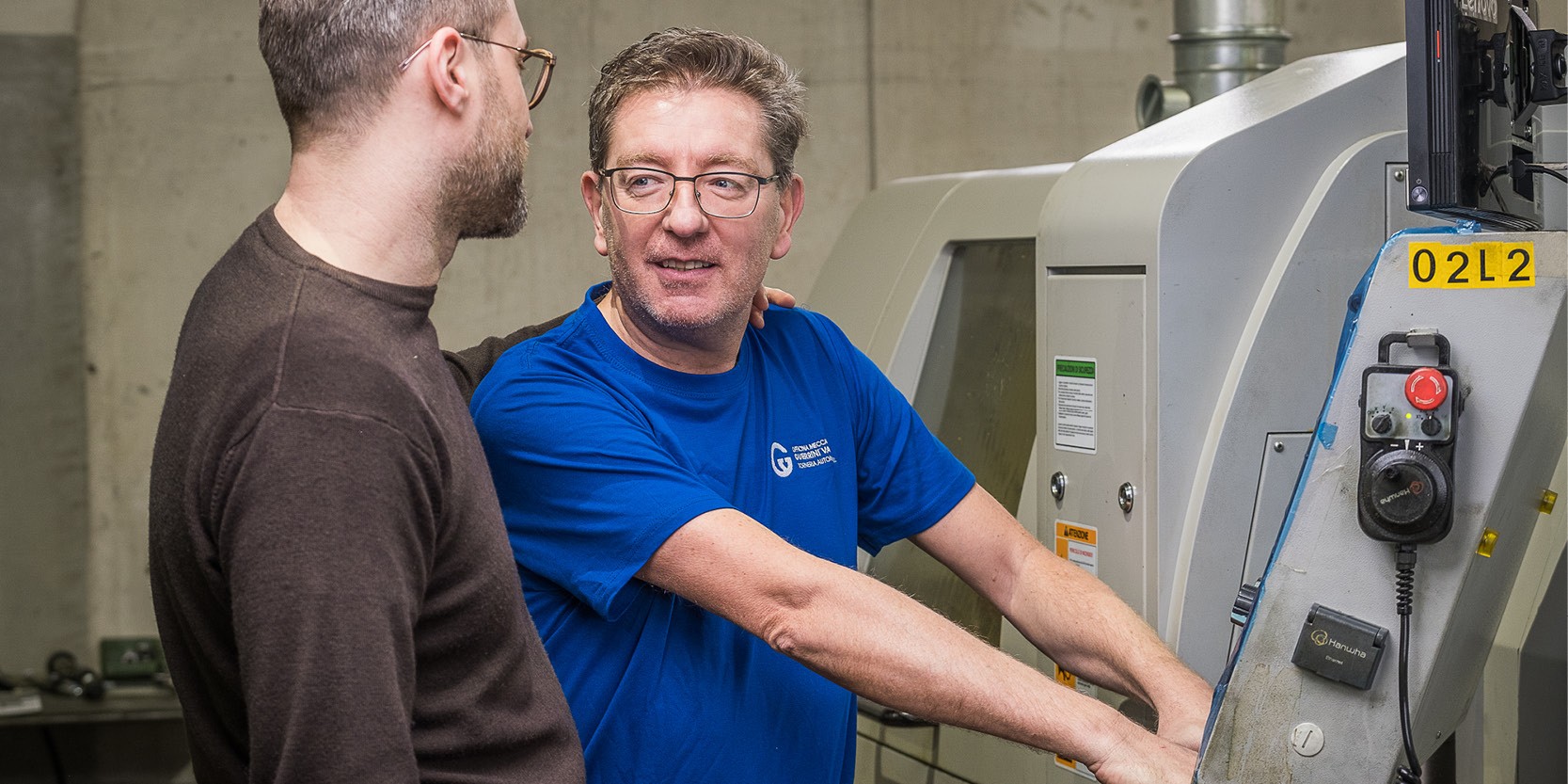I equip machines to realize customer’s drawings, sometimes very complex ones. The more complicated the parts to produce, the more fun I have. Outside the workshop, I coach the kids to play soccer, to get together, to help each other to win….
How many years have you been working at Guerrini?
Since January 1, 2014. I actually knew Guerrini long before that: Valerio had the first workshop in my grandmother’s backyard, so I knew him since I was a child. Then I started work as a mechanical operator at a cousin of my mom’s, and over the years I also worked at another company. I was not convinced about the job in that company, so I looked for something else until I came to work here.
I knew both Valerio and his sons Giordano and Jacopo well, as I was their soccer coach.
What exactly do you do?
My job consists of equipping the machines. I am given the drawing and I have to set up the machine to make exactly that part. It is a job that requires a deep knowledge of all the machines and their functions.
The more complicated the projects, the more fun I have…there is a certain satisfaction in seeing complex parts made.
With all the technological progress and software support, there is continuous improvement in the workshop, and it is essential to constantly adapt our skills by taking training courses. Especially when new machinery arrives, we take very specialized courses, which we then spread internally among the various machine operators in the company.
I get along very well here in the company, and I am always a sunny person who loves to laugh and joke around.
And what do you do when you are not in the workshop?
Since I was 6 years old, I have been playing soccer. I played until 2002-2003. I have been following boys as a coach since 1992 and I still coach them today. They are boys from seventh grade to ninth grade. It is my favorite category.
This year I have 25 boys to coach. Last year, because of the spread of the pandemic, we provided video lessons to the boys, and involving an instructor from Brescia soccer team: we were offering remote exercises. There was a good turnout, and although the kids were forced to train at home, they still had fun.
Now we have resumed at full speed, and I notice that they need to let off steam, to run and be together.
Soccer teaches you just that: to be in a group, to be together. If I lose, you lose too, so you must go beyond your own role, make yourself available to others, help each other to win together. I find that this is the educational value of soccer.
There have been a few kids who have gone on because of their talent, some have made it to the C series. I have always maintained very good relationships with both the boys and the parents. You get together to have fun and to play.
You’ve been coaching for 30 years. How have the younger generations changed?
The last few generations have changed a lot. If I ask them to throw a stationary kick, they take a long time. On the other hand, if you ask them to do a cell phone search, they are done in two seconds.
I am 50 years old and the desire to play football is the same as when I was 15. I have always been free to play. I started when I was 12-13 years old, and when I was 15 I joined a soccer school. Now children start going to soccer schools when they are 5 years old, because everyone thinks they have phenomenon children, and when they get to 15 they are already tired, playing only in teams and on well-maintained soccer fields. When I was young, however, a mowed farm field became a beautiful soccer field for us.
When I go to play with my friends, I happen to see young people of 20/22 years old going to play 5-a-side or 7-a-side, in the amateur category: I can do it at 50 years old, but at 20 years old, the fun is really in the effort!
It seems to me that these young people get tired right away, perhaps because they started too early being harnessed in soccer schools, with parents who sometimes have more expectations than their children and losing sight of the most beautiful thing about this game: pure fun.

